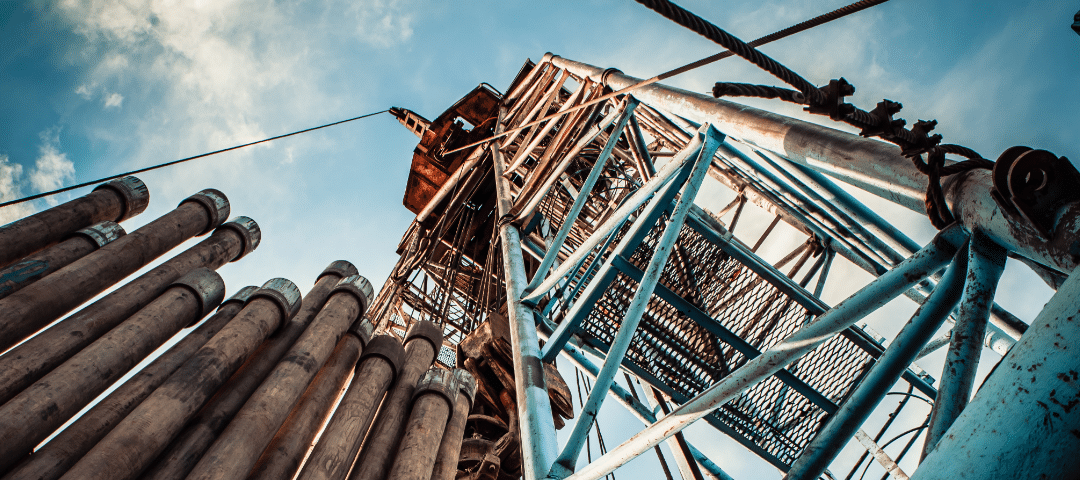 Despite careful planning and meticulous testing practices, many operators of hydraulic fracturing operations have experienced the frustrations and dangers of when couplings fail. A cracked, split or ruptured coupling can not only result in massive financial losses but can pose environmental, health and safety concerns to the surrounding population.
Despite careful planning and meticulous testing practices, many operators of hydraulic fracturing operations have experienced the frustrations and dangers of when couplings fail. A cracked, split or ruptured coupling can not only result in massive financial losses but can pose environmental, health and safety concerns to the surrounding population.
Precision is a provider of innovative API couplings and semi-premium and premium connections, serving the oilfield industry. In this blog, our experts outline some of the most common causes of coupling failures, with valuable insights on how to avoid profit loss and ensure a successful oil exploration operation.
Why Couplings Fail – in a Nutshell
Some of the usual suspects of coupling failures include hydrogen embrittlement, coupling stress, extreme torque and material strength. Most of the time, stress, and excessive internal pressures are usually at the root of most failures. Other times, fluids used in the fracing process can cause corrosion to the coupling material and cause it to fail. Usually, failures result in the spontaneous generation of cracks or delayed time to crack. Stress, temperature, material strength, internal pressure and corrosion rate vary along the casing string. When a combination of three levels reaches critical levels, failure will invariably occur.
So what considerations must be taken to avoid coupling failures? Read below for some insights from the experts at Precision.
Stresses of Coupling
The degree of makeup, dogleg severity, internal pressure and pipe wall thickness contribute to coupling stresses. Coupling stress will increase with pipe weight since the coupling must expand over the thicker more rigid pipe as it is screwed together. Thicker walls like 5.5” 23# can push the hoop stress in an API coupling past yield. While these stresses were high in the past and did not present many issues the advent of fracing added high internal pressures and curved well bores which pushed the couplings beyond the yield point.
Precision advises that all fracing operators be sure to understand and comply with the API limits and use the correct coupling based on the stresses anticipated in each drilling operation.
API Limits on Internal Pressure
5 ½ inch, 23 lb/ft LTC Threads
5 ½ inch, 20 lb/ft & 23 lb/ft BTC Threads
In addition, careful consideration for hoop stress in relation to threading must be observed.
Pitch Diameter Tolerance
LTC +-1 Coupling and Pin Thread
BTC +1/2 Pin and -1/2 Box End
Two additional turns of markup for LTC and one for BTC could result in a dimensional mismatch. As much as 50,000 PSI could occur and over makeup because of hoop stress.
Hydrogen Sources
 Hydraulic fracturing treatments cause higher stress levels in the pipe and coupling. P110 casing especially grades with tensile strengths higher than 150,000 psi are susceptible to cracking caused by hydrogen embrittlement. Sources of hydrogen from well fluids such as H2S and acids in frac fluids penetrate the steel and can cause stress cracks to propagate. Generally it is the combination of low or ambient temperature fluids, stressed pipe or couplings and a source of hydrogen that caused hydrogen embrittlement.
Hydraulic fracturing treatments cause higher stress levels in the pipe and coupling. P110 casing especially grades with tensile strengths higher than 150,000 psi are susceptible to cracking caused by hydrogen embrittlement. Sources of hydrogen from well fluids such as H2S and acids in frac fluids penetrate the steel and can cause stress cracks to propagate. Generally it is the combination of low or ambient temperature fluids, stressed pipe or couplings and a source of hydrogen that caused hydrogen embrittlement.
Material
P110 Couplings – 110,000 to 140,000 PSI
Minimum Tensile Strength – 125,000 PSI
Maximum Tensile Strength – 155,000 to 165,000 PSI
Conclusions and Precision Solutions
Precision delivers a better solution for couplings and connections used in hydraulic fracturing operations. We select grades of coupling materials with better resistance to higher pressures, corrosive environments and high stresses. We also engineer specialty semi-premium and premium connections to push the upper limit of pressures and torque used in fracing operations. We have multiple patents for connections that reliably resist failure from over torquing.
At Precision, we can assist you in your fracing needs with the proper connections, which you can trust for successful results. We base everything off your individual needs, each and every time. Give us a call at (713) 678-8900 to discuss your individual hydraulic fracing needs today.

Recent Comments